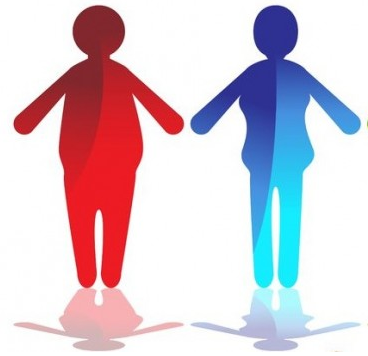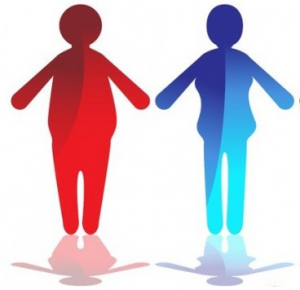News anchor Jennifer Livingston’s on air response to a letter she received in which a viewer criticized her for being overweight received a lot of attention. The viewer wrote “Obesity is one of the worst choices a person can make and one of the most dangerous habits to maintain…I leave you this note hoping that you’ll reconsider your responsibility as a local public personality to present and promote a healthy lifestyle.” Her response was this eloquent on air letter about bullying.
I am of two minds on this issue. For one, I think the reader was out of line with his letter (but I do feel it was his opinion, expressed politely – as far as judgmental and unsolicited feedback can be) and not necessarily “bullying” – what do you think?) On the other hand, it makes me very angry that women in the media are criticized in this way, but not men – we loved Al Roker when he was fat. Has anyone seen Chris Christie lately? He is a public figure on a state and national stage – shouldn’t he set an example? This is a tough issue and a slippery slope for sure. Should weight be a criteria upon which we measure the effectiveness of newscasters? I think not.
For me, Chick-lit author Jennifer Weiner’s amazing, poignant essay in Allure this month called “The F Word” hits much closer to the root of the issue on bullying and weight. She writes of the first time she hears her daughter Lucy call someone fat as a criticism. She writes:
“I’d spent the nine years since her birth getting ready for this day, the day we’d have to have the conversation about this dreaded, stinging word. I had a well-honed, consoling speech at the ready. I knew exactly what to say to the girl on the receiving end of the taunts and the teasing, but in all of my imaginings, it never once occurred to me that my daughter would be the one who used the F word. Fat.”
She goes on to recount stories of growing up fat. She writes of being 10 years old and beginning to understand that everyone is not wired the same way when it comes to food. She writes:
“How can anyone say no to food? I’m beginning to recognize that there are people born with an “off” switch, people to whom food, even the most delicious, is simply fuel. Then there are people like me, who eat every bite and still want more, who sneak into the kitchen when the house is dark for slices of white bread slathered with margarine, sprinkled with cinnamon and sugar. I have no off switch. Happy, sad, lonely, content—the one constant in my life is hunger. I will never be able to take food or leave it; instead, I’ll take it, and then take more.”
[As an aside, this statement really resonated with me. I am not “fat” (and never have been really compared to most Americans and looking at things objectively.) However, I have always had this sort of relationship with food. I am always mystified when friends, colleagues or my (naturally skinny) husband offhandedly tell me that they forgot to eat {insert any meal} here. I can honestly say I have never “forgotten” to eat and any missing of meals has been intentional and stewed over. My relationship with food merits a post on its own…but I will say I am grateful to see someone to validate that people are wired differently when it comes to food and I am not the only one. Sorry to digress! More on this another time.]
Weiner struggles with explaining that fat is not always a choice for people and in the end tells her daughter that she is disappointed in her. and that “there are plenty of reasons for not liking someone, but what they look like is not one of them. She ends poignantly with:
“We’re both quiet, and I don’t know if I said the right thing; I may never know. So as we sit there together, shoulder to shoulder, thigh to thigh, I pray for her to be smart. I pray for her to be strong. I pray for her to find friends, work she loves, a partner who adores her, and for the world not to beat out of her the things that make her who she is, for her life to be easy, and for her to have the strength to handle it when it’s not. And still, always, I pray that she will never struggle as I’ve struggled, that weight will never be her cross to bear. She may not be able to use the word in our home, but I can use it in my head. I pray that she will never get fat.”
I recommend that you read the whole essay. It is definitely a challenge to handle how to teach children to respect differences and not call names. It is a wonder to me that being called “fat” or “bigger than other girls/runners/whatevers” can have such a lasting negative impact (and can in fact backfire). The last sentence of the essay is a real statement about the relationship of weight and self esteem in our society.
What are your thoughts? Was the TV anchor bullied? Can you relate to Jennifer Weiner’s story? Would love to hear what you think, too. That essay really stayed with me!



